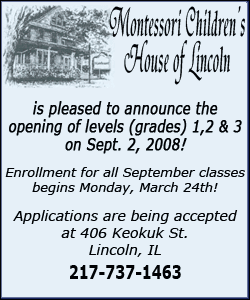|
 "Suddenly my daughter was no longer there," said Terry Poling, the girl's mother, in a news conference Thursday. She and her husband Jon said their daughter Hannah, now 9, has been diagnosed with autism. "Suddenly my daughter was no longer there," said Terry Poling, the girl's mother, in a news conference Thursday. She and her husband Jon said their daughter Hannah, now 9, has been diagnosed with autism.
The government has agreed to pay the Polings from a federal fund that compensates people injured by vaccines. The amount of the settlement hasn't been set yet. U.S. officials reject the idea that vaccines cause autism, but they say that in this case the shots worsened an underlying disorder that led to autism-like symptoms.
The Polings said five simultaneous vaccinations in July 2000 led to Hannah's autistic behavior. She was about 18 months at the time.

U.S. health officials have consistently maintained that vaccines are safe, and the head of the Centers for Disease Control and Prevention said Thursday that there was no change in that position.
"Nothing in any of this is going to change any of our recommendations" about the importance of vaccines for children, said Dr. Julie Gerberding. "Our message to parents is that immunization is lifesaving."
In the Polings' first appearance since their case became public this week, the Athens, Ga., couple acknowledged their legal case never got to the point where evidence was argued.
They called on the government to remove thimerosal -- a mercury-based vaccine preservative
-- from all flu shots. Thimerosal has already been removed from other vaccinations given to children.
"Why take a chance?" asked Jon Poling, a 37-year-old neurologist.
The Polings, accompanied by Hannah, said that as a toddler, their daughter was a bright child who could whistle on command. But almost immediately after the vaccinations nearly eight years ago, she became feverish and irritable. Then, her behavior gradually changed so she would stare at fans and lights and run in circles.

"It wasn't like a switch being turned off. It was more like a dimmer switch being turned down," Jon Poling said.
Government health officials conceded that the vaccines exacerbated an underlying condition and that she should be paid from the federal vaccine-injury fund.
Autism advocates called Hannah's case a "landmark decision," although the Polings' own attorney disputes that.
"This was not a court decision," said Clifford Shoemaker, who is based in Vienna, Va. The U.S. Department of Health and Human Services conceded the case before the court was asked to make a determination, he added.
Government officials wouldn't discuss why they conceded this particular case, but said people with pre-existing disorders can obtain compensation under the program if they establish that their underlying condition was "significantly aggravated" by a vaccine.
[to top of second column] |

Medical and legal experts say the narrow wording and circumstances probably make the case an exception
-- not a precedent for thousands of other pending claims.
"This does not represent anything other than a very special situation," said the CDC's Gerberding.
Hannah has a disorder involving her mitochondria, the energy factories of cells. The disorder
-- which can be present at birth from an inherited gene or acquired later in life
-- impairs cells' ability to use nutrients. It often causes problems in brain functioning and can lead to delays in walking and talking.
Experts argued over how common the disorder is, and by implication, how many other vaccine cases might be affected.
"Most children with autism do not seem to have a mitochondrial problem, so this association ... is probably relatively rare," said Dr. Edwin Trevathan, a pediatric neurologist who heads the CDC's birth defects center.

The United Mitochondrial Disease Foundation, a Pittsburgh-based group that raises money for research, says there are more than 100 types of mitochondrial disease, and genetic tests can find only a couple dozen.
The Polings were exploring two theories about what happened to Hannah. One is that she was born with the mitochondria disorder and the vaccines caused a stress to the body that worsened the condition. The other was that the ingredient thimerosal caused the mitochondrial dysfunction, Jon Poling said.
Since 2002, the preservative thimerosal has been removed from shots recommended for young children, except for some flu shots.
___
On the Net:
CDC Autism Information Center
United Mitochondrial Disease Foundation
[Associated
Press; By MIKE STOBBE]
Medical Writer Marilynn Marchione in Milwaukee contributed to this report.
Copyright 2008 The Associated
Press. All rights reserved. This material may not be published,
broadcast, rewritten or redistributed.

 |